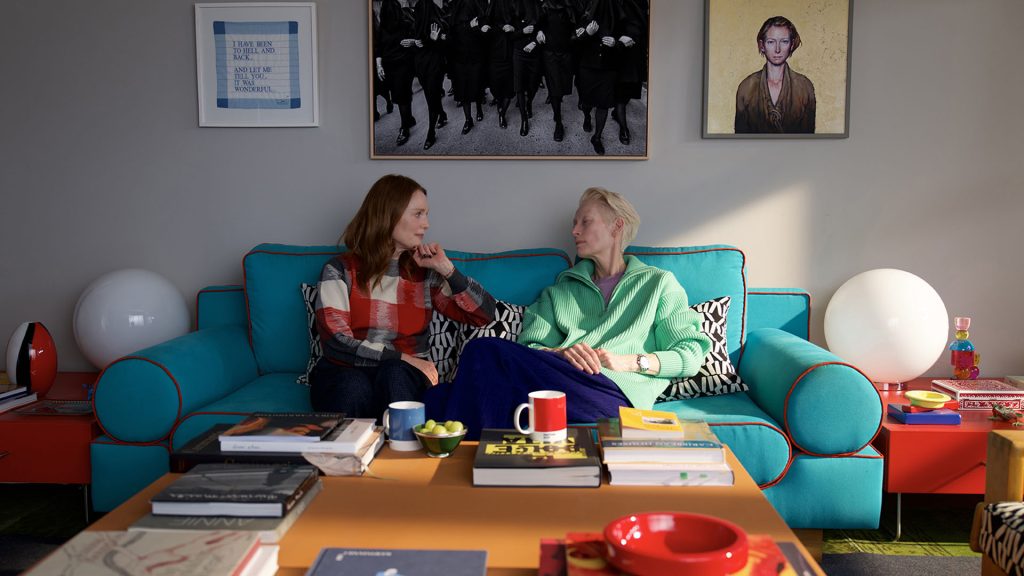

Leurs enfants après eux_The Boukherma Brothers think that making a movie soundtrack means blaring out a pop song at ten-minute intervals, full volume. We must begrudgingly admit that this works just fine.
![]()
The Room Next Door_Iglesias authored all of Pedro Almodóvar’s soundtracks over the last thirty years. He knows his filmmaking perfectly and that he is Europe’s greatest melodrama director. After growing tired of the genre for a while, he came back to it with the same devotion we knew. This is a score of extremely high timbral and instrumental quality. It starts by trusting string quartets. Over time, the sound grows symphonic, and at all times, it is perfectly controlled. In several passages, we feel a sort of strength, of liveliness, that might remind us of film scores as they used to sound in the 1950s. At the time, they were tasked with investigating the removed psychology of the film. The music won’t limit itself to support: it investigates, it digs deep, it shines a light on dark corners, it lives its own life that is apparently contrary to its supposed role of composed elegy of narration and the two actresses’ pain-ridden self-control. It is a contrast that disturbs us none, though, instead, it provides a new level of understanding. In these cases, music won’t be limited to gift the images with beautiful sound that will open our hearts, but grows into an essential interpretative factor.
![]()

Adapted from Nicolas Mathieu’s novel of the same name (winner of the 2018 Goncourt Prize), the story takes us back to August 1992 in a remote valley in eastern France, where industries are closing down. To escape the boredom of the sweltering summer days, fourteen-year-o...

The already strained relationship between Martha (Swinton) and her daughter shatters due to a misunderstanding that will permanently separate the two women. Ingrid (Moore), a bestselling author, witnesses this painful family feud. During a stay in a house surrounded by nature ...